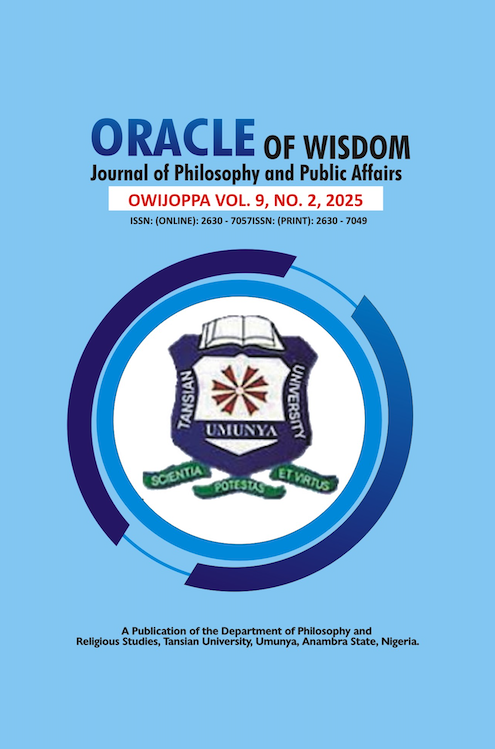ARTIFICIAL INTELLIGENCE AND EDUCATION IN AFRICA: PHILOSOPHICAL REFLECTIONS ON FOUNDATIONAL CHALLENGES
Résumé
In ancient times, Africans were known to be very creative and productive; they never waited for Europeans to solve their problems for them. But, with the invasion of Europeans and their system of education, Africans immediately lost grips with its traditional functional education system. The values of Practicability or workability of traditional African education became overshadowed by Western curriculum and theoretically-based studies. This trend has thus facilitated under development, intellectual poverty, and instrumentalized or manipulative use of the adopted education curriculums in various African countries to forestall meaningful research and studies that otherwise would have been channeled towards genuine development. Against this backdrop therefore, one wonders if Africa currently has the education foundational force to drive an AI-driven educational and research culture to meet with global standards. Using Philosophical analysis and evaluative methods, therefore, we assess our educational heritage and the pedagogical methods prevalent in Africa, with focus on how they currently affect African apprenticeship models and school systems. The goal is to ascertain the degree of preparedness, functional credibility, and potential research prowess necessary to drive the desired development in Africa. The impact of artificial intelligence (AI) in African education is portrayed as to upgrade the status quo or the system of education in Africa


